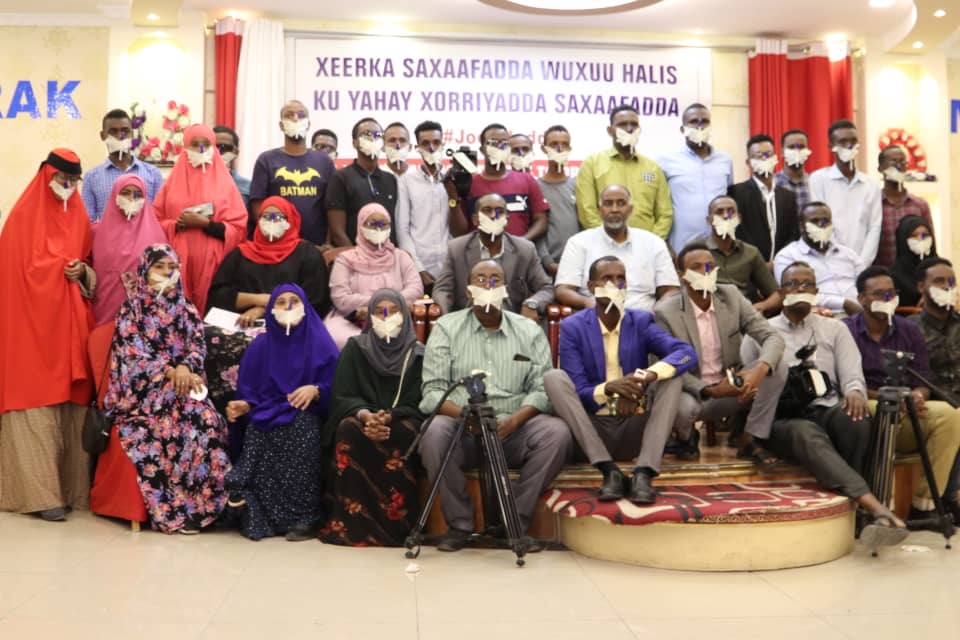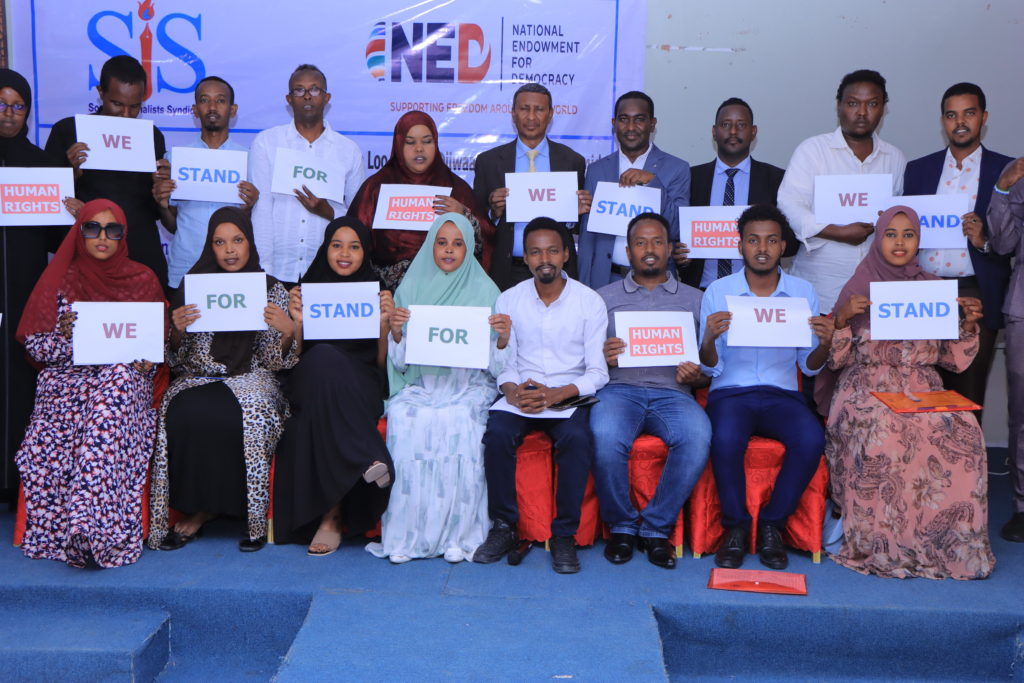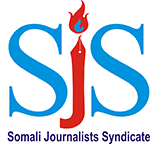Authorities Must Promote and Protect Access to and Free Flow of Information
MOGADISHU, Somalia 28 September 2022 – On the International Day for Universal Access to Information, Somali journalists have little to celebrate about. The often precarious and volatile environment is coupled with restrictions on access to information, duress and insecurity.
Journalists in Mogadishu, Hirshabelle, Galmudug, South West and Jubbaland told SJS that they were blocked from major events and to the scenes of incidents, including sites of Al-Shabaab attacks and denied access to information on public interests. Journalists have particularly narrated acts of censorship and intimidation aimed at stopping them from uncovering serious human rights violations. Police commanders, judges, government officials, clan leaders and members of al-Shabaab were described as the key perpetrators of these violations. Journalists in Puntland told SJS that they were denied access to cover news reports revealing police wrongdoings and sexual violence against women and girls.

“In our recent human rights journalism training supported by the National Endowment for Democracy, journalists shared their plight by narrating first hand experiences. Lack of access to information creates a chilling climate of self-censorship and co-optation by a majority of the media houses and journalists nationwide,” said SJS Secretary-General, Abdalle Ahmed Mumin.
Authorities in Somaliland have used severe restrictions on access to information including internet outage, detention of journalists, suspension of media houses as well as threats intended to silence critical coverage by the local journalists.
Journalists, particularly those covering human rights, have spoken about economic hardships as a direct consequence of their work to document and investigate human rights violations. The hostile attitude towards journalists covering human rights abuses and the lack of awareness for the general public also remain as part of the challenge.

Universal access to information means that everyone has the right to seek, receive and impart information. The media plays a vital role, particularly when it aims to inform the public of critical information and monitors government actions. The right to universal access to information is also bound up with the right to freedom of the press. Unfortunately, the Federal Government of Somalia and its member states are yet to introduce the Access to Information Bill which is a constitutional requirement under Article 32 of the Provisional Federal Constitution.
“The growing pressure against Somali journalists and lack of access to information call for concern. When journalists are blocked, threatened and their access to information denied, it will entrench a culture of impunity. Providing and presenting information to the general public, particularly on human rights violations promotes redress for the victims or to seek justice regarding perpetrators through legal action,” Mumin said. “We call for an end to the restriction to access to information by state and non-state actors in Somalia.”
On the occasion of the International Day for Universal Access to Information, SJS makes the following call to the Somali Federal Government, Federal Member States, international partners and the donor community:
Somali federal government and its FMS should:
- Allow journalists and media workers access to government information including by not putting restrictions on accessing government buildings and interviewing public officials;
- Provide safety and protect journalists who are investigating and uncovering serious human rights violations including those perpetrated by the government officials and security forces;
- Protect whistle blowers who contribute valuable information to the journalists for the sake of public interest;
- Not unjustifiably restrict and interfere with the rights of individuals to seek, receive and impart information;
- Accelerate and draft the Access to Information Bill through the parliament as required by the Constitution.
The international partners should:
- Support local civil society groups to carry out systematic monitoring and reporting on violations and abuses of the right to freedom of expression, access to information and media freedom throughout the country;
- Urge the Federal Government of Somalia and the Federal Member States to respect, protect and promote the rights of journalists;
- Pressure the Somali Federal Government and FMS to accelerate the Access to Information Bill through the parliament and provide the necessary support.
The donor community should:
- Support public education campaigns on respect for human rights including the right to freedom of expression, access to information and media freedom;
- Support actions that promote the safety of journalists in Somalia;
- Include the Somali development and peace-building funding support initiatives that promote human rights, media freedom and safety of the journalists;
- Strengthen efforts made by the local civil society and journalists associations to promote media freedom and the right to freedom of expression, access to information and media freedom.


